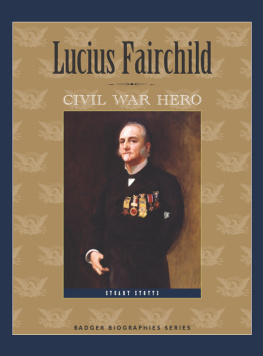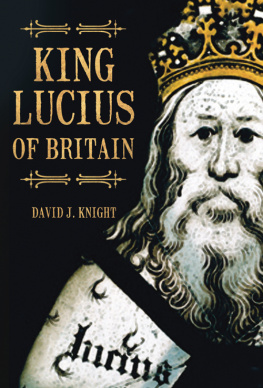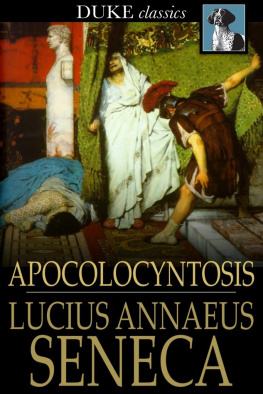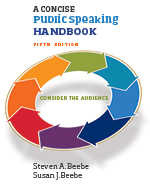Foreword
W hen, in the wide-open New York that flowered in the years immediately after the Civil War, the towns biggest gambler and a political jeffe of consequence John Morrissey opened what were reputed to be the worlds most lavish gaming rooms on Twenty-fourth Street opposite the chaste premises of the ultrarespectable Fifth Avenue Hotel, there were those of his neighbors who took offense. These fastidious cave dwellers, although not above patronizing Morrisseys games of chance or eating a dish of diamondback terrapin from his celebrated free buffet, maintained that his casino lowered the moral tone of the community, and their wives, when the Morrisseys attended grand opera at the Academy of Music, ostentatiously glared at Mrs. Morrissey through mother-of-pearl opera glasses.
On a to-hell-with-you basis of affront to these social dissidents, Morrissey ran for Congress. He won handily and just to be sure nobody missed the point, he ran a second time and was re-elected by an even wider margin.
To celebrate his second victory, he commanded from Lemaire of Paris, for his wife, what were probably the most ostentatious pair of opera glasses ever seen until that time. Their framework was in the form of a diamond and sapphire lyre and they cost $75,000, which enabled the delighted Mrs. Morrissey to glare right back and in an even more expensive manner at her social detractors on opening nights.
Openhanded John Morrisseys pleasure in his wifes effulgence anticipated by only a few decades that of Potter Palmer, the Chicago hotel-man who kept his wife so loaded with jewels that observers following her progress through the restaurant of the Paris Ritz thought that she staggered visibly, not from any communion with the wine card, but from sheer weight of diamonds. There she stands with half a million on her back, Potter Palmer used to say admiringly.
It was at Morrisseys, too, whose gaming rooms were so magnificently furnished that they reputedly outshone any and all European casinos of the time, that the senior August Belmont consumed at the midnight buffet what he proudly announced to be the most costly brace of canvasback ducks ever served in the United States. He had just lost $60,000 at baccarat, which tagged each duck at $30,000, a price he allowed was entirely in keeping with his station as the American representative of the House of Rothschild.
For sheer costliness for an entree, Belmonts ducks set a record that was to remain unchallenged until a century later when a single order of breast of chicken in aspic precipitated a lawsuit between Calouste Gulbenkian, the Iranian oil tycoon, and his son Nubar, the greatest magnifico of his age, in which the barristers fees alone came to $150,000. The elder Gulbenkian took exception to his sons charge of luncheon on an expense account and the most expensive family falling out of the London generation followed.
Except, however, as they may furnish a frame of reference or solid-gold standard of comparison for parallel splendors nearer home, the caprices of foreign magnificoes are not the immediate concern of this book. A possible exception to this ruling may well be the case of the elegant Count Boni de Castellane whose flights of fancy relieved Anna Gould of $12,000,000 in half as many years, but this was, after all, American money and therefore in a position to command attention.
Asked to itemize some of his whims, Boni later deposed that he had spent the $12,000,000 sweated from the Missouri Pacific and other Gould railroads on such matters as my general existence, my chateaux, my palaces, my bibelots , my race horses, my yachts, my traveling expenses, my political career, my charities, my fetes, my wifes jewels and loans to my friends... , He added: I claim to represent the best investment the Goulds ever made.
Who can say him no?
The purview of this inquiry inclines more closely to the film celebrity who, a few years back, attended the opening of a new ice-cream parlor by Wil Wright, Hollywoods and, therefore, the worlds most expensive merchant of butterfat content. The name laid a crisp new $100 bill on the marble counter and said: Couple of cones please, if thats sufficient.
Associate with people of cultivated tastes and some of the culture may rub off on you, once remarked Stanley Walker, the celebrated city editor of the New York Herald Tribune in the 1930s. Hang around musical folk and you may, with luck, get to know Brahms from Beethoven. But keep company with the very rich and youll end picking up the check.
While this was, and is, a quotable aphorism and may in some cases be possessed of validity, it neednt be accepted as universal sooth. People who hung around with John D. Rockefeller, especially if their name was Flagler, Archbold, or Rogers, had no visible cause to regret it.
Those fortunate enough to find themselves in the company of William Collins Whitney may have had occasion to ponder their ways the next morning but while the association lasted, nobody had reason to complain. Whitney, the archmagnifico of the American scene at the turn of the century, was far and away the greatest champagne buyer in the house, not excepting George Kessler and Manny Chappelle, who were paid to push the stuff around.
If you consorted for any protracted period of time: with Mrs. Stuyvesant Fish you were pretty apt to get your name in the society columns which, to a number of people at the time and place, represented the sum of all imaginable good.
On the other hand, if you hung around Bleecks saloon next door to the Herald Tribune with Stanley Walker himself, you almost invariably ended picking up the tab, for the author of Mrs . Astors Horse and City Editor was a match game player of accredited skill and ferocity. It wasnt associating with the rich that sent young reporters home on the subway instead of in a taxi. It was associating with the cultured cowboy from Lampasas, Texas.
Anybody, said Jay Gould, can make a fortune;. It takes a genius to hold onto one.
A man with a million dollars can be as happy nowadays as though he were rich, deposed Ward McAllister.
Money has a tendency to buy happiness, wrote Damon Runyon.
Money is something to be thrown off the back platform of moving trains, was the stated philosophy of Gene Fowler.
Each of the foregoing expressed at least a facet of the basic thinking of all but the most benighted men and women. There are proverbs and admonitions to the contrary, to be sure. A fool and his money are soon parted is learned by that mythical entity, every schoolboy, as early as he can read and write. Prudence and saving ways were advocated in ample abundance by Benjamin Franklin. The impending rainy day is part of every Americans subconscious awareness as is attested by the hundreds of millions of dollars in savings banks; but, by and large, the American people are a spending people just as, by and large, the French are a saving people, unless, of course, they happen to have in hand somebody elses money.
On the basis of the existing record it is safe to assert that, in the great American credo, a rich man is the noblest handiwork of God, and the corollary of the aphorism is that how he spends his money is the measure of the rich man.
It is the purpose of this book to explore some of the ways in which Americans and, in a few cases, foreigners financed with American money have expressed the genius required for the rewarding expenditure of substantial sums of money.
When in the early 1920s an Armenian named Michael Arlen who was then living in England and later became an American citizen found himself on the way to almost overnight riches on the strength of a novel called The Green Hat , he was faced with the problem of how to spend the not inconsiderable sum represented by his first royalty check. His first impulse, which he happily was able to resist, was to pay his indebtedness to his tailor, who happened to be Henry Poole & Company Limited just off Burlington Gardens. He might also have paid his back rent which was mounting or even repaid some of the loans from kind friends on which he had been subsisting while waiting for fame to crown his slightly oriental brows.










